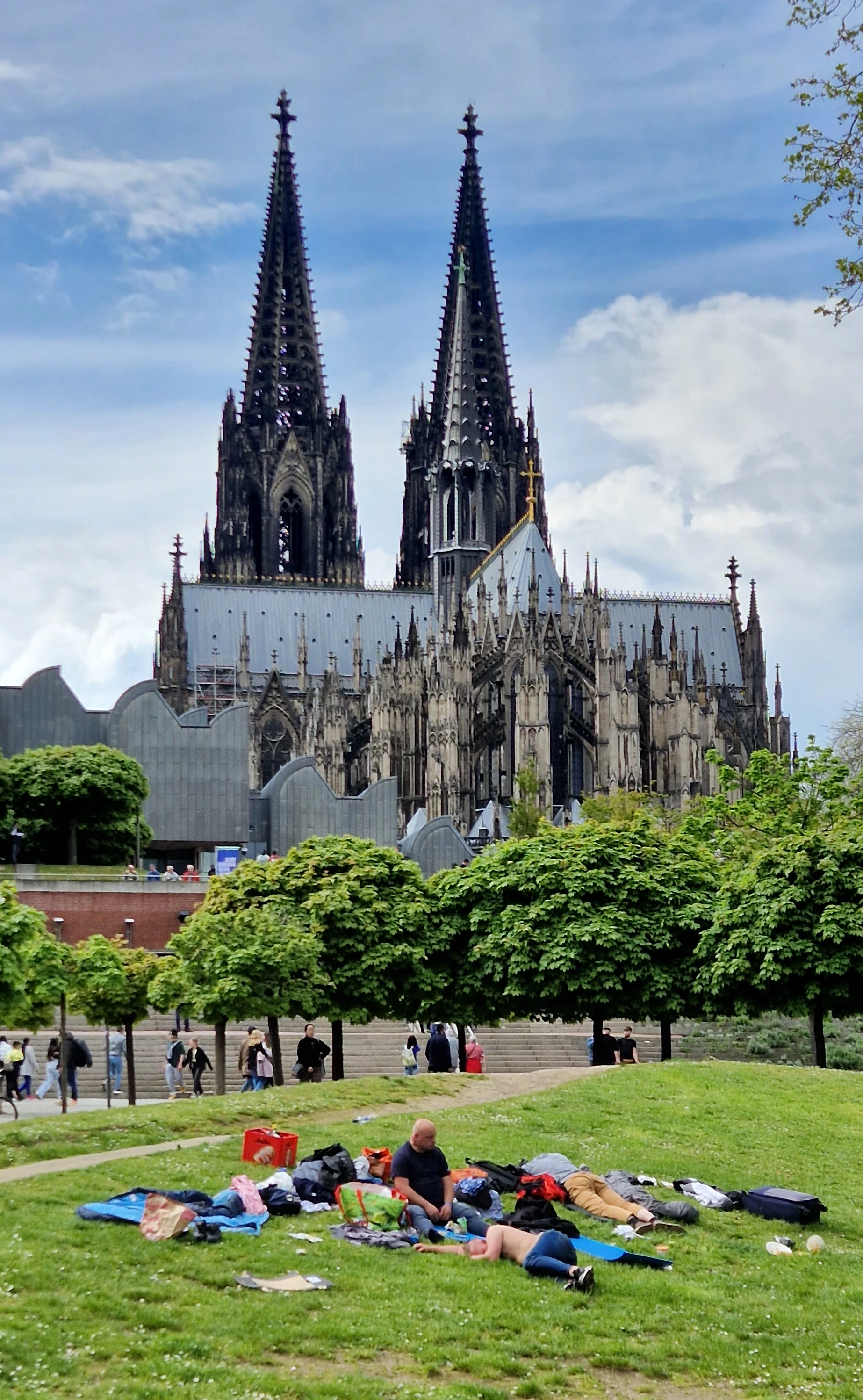-
Neueste Beiträge
Archive
- Juli 2025
- Juni 2025
- Mai 2025
- April 2025
- März 2025
- Februar 2025
- Januar 2025
- Dezember 2024
- November 2024
- Oktober 2024
- September 2024
- August 2024
- Juli 2024
- Juni 2024
- Mai 2024
- April 2024
- März 2024
- Februar 2024
- Januar 2024
- Dezember 2023
- November 2023
- Oktober 2023
- September 2023
- August 2023
- Juli 2023
- Juni 2023
- Mai 2023
- April 2023
- März 2023
- Februar 2023
- Januar 2023
- Dezember 2022
- November 2022
- Oktober 2022
- September 2022
- August 2022
- Juli 2022
- Juni 2022
- Mai 2022
- April 2022
- März 2022
- Februar 2022
- Januar 2022
- Dezember 2021
- November 2021
- Oktober 2021
- September 2021
- August 2021
- Juli 2021
- Juni 2021
- Mai 2021
- April 2021
- März 2021
- Februar 2021
- Januar 2021
- Dezember 2020
- November 2020
- Oktober 2020
- September 2020
- August 2020
- Juli 2020
- Juni 2020
- Mai 2020
- April 2020
- März 2020
- Februar 2020
- Januar 2020
- Dezember 2019
- November 2019
- Oktober 2019
- September 2019
- August 2019
- Juli 2019
- Juni 2019
- Mai 2019
- April 2019
- März 2019
- Februar 2019
- Januar 2019
- Dezember 2018
- November 2018
- Oktober 2018
- September 2018
- August 2018
- Juli 2018
- Juni 2018
- Mai 2018
- April 2018
- März 2018
- Februar 2018
- Januar 2018
- Dezember 2017
- November 2017
- Oktober 2017
- September 2017
- August 2017
- Juni 2017
- Mai 2017
- April 2017
- März 2017
- Februar 2017
- Januar 2017
- Dezember 2016
- November 2016
- Oktober 2016
- September 2016
- August 2016
- Juli 2016
- Juni 2016
- Mai 2016
- April 2016
- März 2016
- Februar 2016
- Januar 2016
- Dezember 2015
- November 2015
- Oktober 2015
- August 2015
- Juli 2015
- Juni 2015
- April 2015
- Januar 2015
- Dezember 2014
- November 2014
- Oktober 2014
- September 2014
- Juli 2014
- Juni 2014
- Mai 2014
- April 2014
Sandra Scheuer, * 11.08.1949 – † 04.05.1970
Kommentare deaktiviert für Sandra Scheuer, * 11.08.1949 – † 04.05.1970
In the conjuncture of ‚Antinomies’—this was as true of Hobsbawm or Gerratana as of myself—we were writing of a different era: a time when there had recently been the largest mass strike in history in France, the overthrow of a government by workers in Britain, continuous outbreaks of revolt in Italy, the defeat of the United States in Vietnam, and a revolution in Portugal, where hopes and fears of a social upheaval, galvanizing Washington and Bonn to vigilance, were still fresh. It was the last hour of what Lukács, in his tribute to Lenin in 1923, had called the actuality of the revolution. Portugal features both in ‚Antinomies‘ and in Hobsbawm’s rejoinders to it.
—Perry Anderson, The Antinomies of Antonio Gramsci, October 2016 preface, (London: Verso, 2020), 25.
Kommentare deaktiviert für
Ein Blick in die Berufsstatistik eines konfessionell gemischten Landes pflegt mit auffallender Häufigkeit eine Erscheinung zu zeigen, welche mehrfach in der katholischen Presse und Literatur und auf den Katholikentagen Deutschlands lebhaft erörtert worden ist: den ganz vorwiegend protestantischen Charakter des Kapitalbesitzes und Unternehmertums sowohl, wie der oberen gelernten Schichten der Arbeiterschaft, namentlich aber des höheren technisch oder kaufmännisch vorgebildeten Personals der modernen Unternehmungen. Nicht nur da, wo die Differenz der Konfession mit einem Unterschied der Nationalität und damit des Grades der Kulturentwicklung zusammenfällt, wie im deutschen Osten zwischen Deutschen und Polen, sondern fast überall da, wo überhaupt die kapitalistische Entwicklung in der Zeit ihres Aufblühens freie Hand hatte, die Bevölkerung nach ihren Bedürfnissen sozial umzuschichten und beruflich zu gliedern, — und je mehr dies der Fall war, desto deutlicher, — finden wir jene Erscheinung in den Zahlen der Konfessionsstatistik ausgeprägt.
—Max Weber, »Die protestantische Ethik und der Geist des Kapitalismus«, (München: Verlag C.H. Beck, 2004), 65.
Kommentare deaktiviert für
Absent some new realignment, we face an unsettled terrain with no broadly legitimate hegemonic ruling bloc—nor any clear and credible counterhegemonic challenger. In this situation, the most likely near-term scenario is a series of pendulum swings, with governments oscillating back and forth between the frankly neoliberal (progressive or regressive, diversity-friendly or exclusionary, liberal-democratic or proto-fascist) and the professedly anti-neoliberal (left- or right-populist or social-democratic or communitarian), the precise mix to be determined in every case by national specificities.
Such political oscillations mark the present as an interregnum: a time when, in the words of Antonio Gramsci, „the old is dying and the new cannot be born.“ The duration of this interregnum is anyone’s guess, as is the likelihood of its devolution into full-bore authoritarianism, major war, or catastrophic meltdown—as opposed to „mere“ slow unraveling. One way or another, the system’s impasses will continue to grind away at our ways of life, until such time as a credible counterhegemonic bloc can be assembled. Until then, we will live (and die) amid the vast array of „morbid symptoms“ that mark the death throes of financialized capitalism, and the general crisis it has wrought.
Whatever happens, this much is clear: crises like this one do not come along every day.
—Nancy Fraser, Cannibal Capitalism, (London: Verso, 2022), 136-137.
Kommentare deaktiviert für
Generally, financialized capitalism is the era of „governance without government“—which is to say, that of domination without the fig leaf of consent. In this regime, it is not states but transnational governance structures such as the European Union, World Trade Organization, NAFTA, and TRIPS that make the lion’s share of the coercively enforceable rules that now govern vast swaths of social interaction throughout the world. Accountable to no one and acting overwhelmingly in the interest of capital, these bodies are „constitutionalizing“ neoliberal notions of „free trade“ and „intellectual property,“ hard-wiring them into the global regime, and preempting democratic labor and environmental legislation in advance. Through a variety of means, finally, this regime has promoted the capture of public power by private (corporate) power, while also colonizing the former internally, modeling its modus operandi on that of private firms.
The overall effect has been to hollow out public power at every level.
—Nancy Fraser, Cannibal Capitalism, (London: Verso, 2022), 130.
Kommentare deaktiviert für
Essential to its functioning, public power is part and parcel of the institutionalized societal order that is capitalism.
Nevertheless, the maintenance of political power stands in tense relation with the imperative of capital accumulation. The reason lies in capitalism’s distinctive institutional topography, which separates „the economic“ from „the political.“ In this respect, capitalist societies differ from earlier forms, in which those instances were effectively fused—as, for example, in feudal society, where control over labor, land, and military force was vested in the single institution of lordship and vassalage. In capitalist society, by contrast, economic power and political power are split apart; each is assigned its own sphere, endowed with its own distinctive medium and modus operandi. The power to organize production is privatized and devolved to capital, which is supposed to deploy only the „natural,“ „nonpolitical“ sanctions of hunger and need. The task of governing „non-economic“ orders, including those that supply the external conditions for accumulation, falls to the public power, which alone may utilize the „political“ media of law and „legitimate“ state violence. In capitalism, therefore, the economic is nonpolitical, and the political is non-economic.
Constitutive of capitalism as an institutionalized societal order, this separation severely limits the scope of the political within that order. Devolving vast aspects of social life to the rule of „the market“ (in reality, to large corporations), it declares them off limits to democratic decision making, collective action, and public control. The arrangement deprives us of the ability to decide collectively what and how much we want to produce, on what energic basis and through what kinds of social relations. It deprives us, too, of the capacity to determine how we want to use the social surplus we collectively produce; how we want to relate to nature and to future generations; how we want to organize the work of social reproduction and its relation to that of production. By virtue of its inherent structure, then, capitalism is fundamentally anti-democratic. Even in the best-case scenario, democracy in a capitalist society must perforce be limited and weak.
—Nancy Fraser, Cannibal Capitalism, (London: Verso, 2022), 121-122.
Kommentare deaktiviert für







